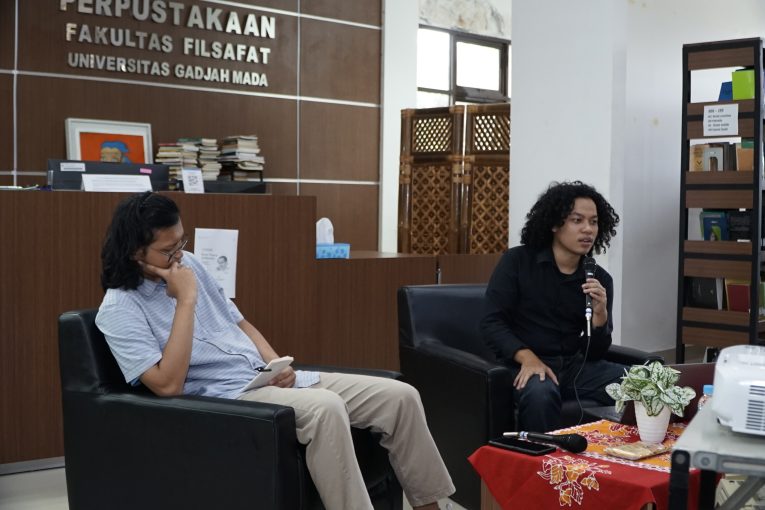
The Faculty of Philosophy at Universitas Gadjah Mada once again hosted its regular Great Philosopher discussion series, this time focusing on a significant topic in metaethics: the Error Theory of Morality by philosopher J.L. Mackie. The discussion took place at the Faculty of Philosophy Library Reading Room and was led by Gladwin Panjaitan as the speaker, with Alfred Brilian Bassang serving as moderator.
During the session, Gladwin reviewed J.L. Mackie’s ideas as presented in his book Ethics: Inventing Right and Wrong (1977), where Mackie proposed a skeptical moral approach he termed the Error Theory. This theory acts as a critical response to the then-dominant Emotivism by arguing that linguistic analysis alone is insufficient to fully grasp moral reality.
Gladwin explained that Mackie’s critique also touches on the longstanding debate between cognitivism and non-cognitivism in moral philosophy. “We talk as if moral values are objective, which means moral statements are cognitive. But since we are skeptical about morality, we must say that all moral statements are false,” he conveyed.
Although this view contradicts common sense, Mackie confidently presents strong philosophical arguments to support this skepticism. Among them are the facts that moral codes vary greatly across cultures and time, and that there is no firm ontological or epistemological foundation for universal moral values.
The Great Philosopher program is an initiative by the Faculty of Philosophy UGM to explore the thoughts of great world philosophers in a more critical and dialogical manner. The discussion also serves as a reflective and analytical space that enriches students’ understanding of the complexities inherent in various philosophical topics.
